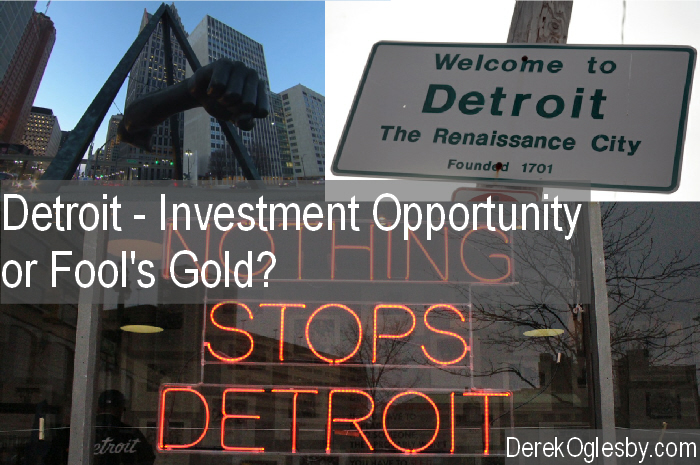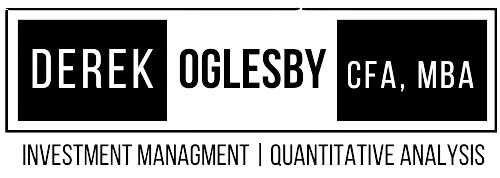
Everyone loves an underdog comeback story, a Rocky that beats an Apollo Creed or a “Miracle on Ice” moment. Human nature is attracted to underdogs because they are perceived as disadvantaged, and thus, we root for them to beat the odds. Detroit is definitely viewed an underdog, and I believe most (if not all) of us are rooting for a comeback.
As an initial matter, I have a different perspective than most Detroiters because I did not grow up in the city but have lived in Detroit, or the Metropolitan area, for the past fifteen years by way of St. Louis, Missouri. As such, I did not experience first-hand all of the pain and frustration that resulted from governmental decisions made in the 1960s and 70s, nor do I have the deep-rooted political or cultural nuances that have shaped the opinions of most Detroiters today. It is widely known that Detroit has been the black sheep, the neglected child, the punchline in comedy monologues, the place the country sees as a destitute, decaying city. Quite frankly, due to past corruption, current blight, high crime and elevated unemployment rates, the city’s perception nationally, and around the world, has not significantly changed.
Detroit’s bankruptcy filing made headline news, and in turn, the city was perceived as hitting a devastating rock bottom. Many never saw or had any faith that Detroit would lift itself out of its economic black hole. Now, post-bankruptcy, the city may be seeing a glimpse of the future in a positive light. Detroit is waiting to make a comeback. The underdog for so many years, a city with such a rich history and abundant potential is finally getting attention. However, is Detroit an investment opportunity or is it just fool’s gold?
SMART MONEY IS MOVING IN
A number of new businesses are bringing a fresh breath of fresh air for the city. Some have even compared Detroit as the next New York City. While I understand urban revitalization similarities between these cities, I believe we have to pump the brakes a bit on this comparison. Nonetheless, Detroit has the recipe for any investor to take note: expected growth at a low cost. Smart money (money invested by people with expert knowledge) is coming into Detroit at a rapid pace.
The most visible area of investment has been in the downtown area. From the riverfront, city landscape, buildings, restaurants and sports venues, downtown has begun its renaissance. Dan Gilbert (Mr. Quicken Loans) and his brethren of companies has pumped over $1 billion in Detroit over the past several years. The Ilitch family (Mr. Little Caesars Pizza, and owner of the Red Wings and Tigers) has invested $650 million in a new arena and arena district development. JPMorgan Chase has a $34 million stake in Detroit and even Warren Buffett (Mr. Investment himself) stated that he would gladly buy a company in Detroit today because he believes Detroit is “mispriced”.
The corporate investment does not stop there. Whole Foods Organic Supermarket was the first major grocery store to set up shop downtown; Fifth Third Bank is moving its regional headquarters downtown; Chrysler has moved several offices to the city; and several retail projects, housing developments and restaurants are in the works as well. Not only is Detroit a highly appealing investment for U.S. businesses, but also for international companies. For example, Chinese development company, DDI Group, purchased three buildings downtown, including the original Free Press Building. German-based supplier and tech company, ZF, acquired TRW in Livonia. Japanese supplier, Aisin, recently opened its North American Headquarters in Northville Township, and China’s Wanxiang purchased battery maker A123 in Livonia.
SMALL BUSINESS HAVEN
Investors are used to the saying, “don’t fight the trend, the trend is your friend.” This mentality definitely applies when it comes to the influx of capital to the Detroit area. Major venture capital firms are injecting money into young startups in and around the city. This is just the beginning. Detroit offers the opportunity for small businesses to operate in ways they could not do so elsewhere. Entrepreneurs and small business owners have a plethora of capital options available and a host of appealing tax incentives to take advantage of.
DOWNTOWN VS EVERYWHERE ELSE
Although things may be looking up for downtown, it will be difficult to maintain the interest of investors if more is not done to improve conditions in surrounding areas. With several abandoned neighborhoods in the Detroit vicinity, there must be more focus on not just rebuilding the downtown district, but also its communities.
THE REALITY
Land Mass
A successful resurgence and revitalization in Cincinnati and Cleveland has many hopeful for the same in Detroit, but the “D” has a challenge that no other city has – land mass. Just for perspective, Boston, Manhattan and San Francisco encompass 117 square miles combined. Detroit is 139 square miles, having only a quarter of their population. This is a real issue when it comes to managing resources efficiently.
Real Estate
Although the real estate in Detroit is fairly below the market value seen around the rest of the country, it is not without good reason. Many of the homes and buildings have been left unoccupied for many years. This means buying the property would require thousands of dollars in renovations. Very little of the homes for sale in Detroit are completely ‘move in ready’. While some real estate investors are successful due to the “mispricing” of certain neighborhoods, the average investor will face several challenges. For example, at first glance, purchasing a property for $5,000 may be deemed a great fix and flip/rent opportunity, but considering the area, cost to remodel, code and historic ordinances, high insurance fees, liability claims, vandalism, theft, etc., a potential real estate investment must be closely scrutinized.
Education
Education is the hallmark of any developed society. It is a primary focus for all communities, and the main determinant for property value. What builds communities? Investment and families. What would create more investment and families? Improve Detroit’s schools. Period. Unfortunately, the Detroit school system is one of the worst in the country, and it has been a failing district for decades. According to the results of the 2015 National Assessment of Educational Progress (NAEP) tests, Detroit ranked dead last in the country among big cities. Ninety-six percent of Detroit Public School eighth graders are not proficient in mathematics, and ninety-three percent are not proficient in reading.
Crime
It is no secret that Detroit is one the most crime ridden cities in the country. According to the FBI, Detroit has the highest violent crime rate in the nation for the second straight year for cities of more than 100,000 residents. Like any place someone would want to call home, security and safety are mandatory. There needs to be a major renovation within the city to lower crime rates to increase appeal.
Opportunity creates pride and ownership in one’s community. Without opportunity, little can be done with education, crime and housing. Each element goes hand in hand.
SAME OLD LIONS?
If you are a Detroit Lions fan, the self-defeating phrase, “Same Old Lions” is heavily imprinted in your hearts and minds. It is a term that is commonly used as a way to make sense of, or justify a disappointing, unfavorable outcome from a highly favorable beginning. In other words, don’t get your hopes up too high, because the Lions will always find a way to let you down. Just as Detroiters have been duped by their Lions, have we all been misled by Detroit’s potential? Investment opportunity in Detroit is nothing new. We have seen countless investment projects over the years throughout the city of Detroit begin and spark excitement, only to fizzle out a few years later. Maybe the recent smart money investors know something that previous investors did not. There is no denying, however, the buzz that has been created from the visual improvements in and around the city. Like any investor would say, without risk, there is no return.
Be prosperous, my friends.
Derek Oglesby is a risk management consultant, providing advice for financial industry professionals through his namesake website DerekOglesby.com. Oglesby is a Charted Financial Analyst (CFA) with 17+ years of proven expertise in the finance and investment industry. He is most known for his expertise in the areas of quantitative analysis & financial modeling, fixed-income management, strategy and investment research. For more information about Derek Oglesby visit www.DerekOglesby.com or email derek@derekoglesby.com
